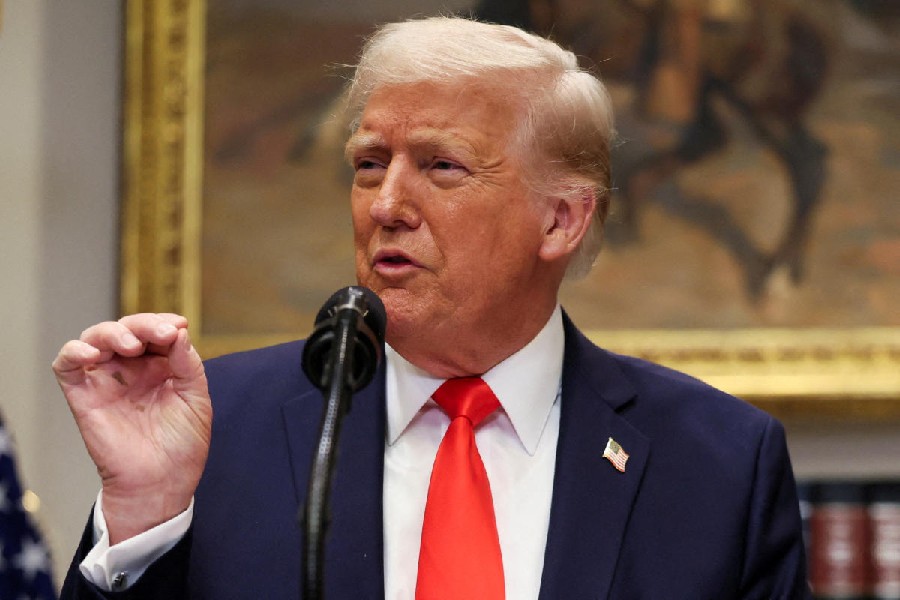Politicians in India believe that power is equal to mastery in every sphere. Education, for example, is firmly in their hands, irrespective of their experience of academia. Usually governments are reluctant to lose the chance of inserting the ruling party’s point of view — mildly or aggressively — into teaching materials or methods. Funding education, a public good, becomes a route for control, which is why autonomy has remained elusive for educational institutions. One positive feature of the Trinamul Congress government in West Bengal is that it did not try experimenting with school syllabi, such as postponing the learning of English till Class V, as an earlier government had done. That changed the future for a whole generation of students. Rather, the present government has shown some positive achievements: according to the Annual Status of Education Report from Pratham last September, Bengal ranked first in the country in reducing the percentage of school drop-outs.
Government schemes and policies have helped. Different reports and accounts suggest that not just the proper distribution of midday meals — during the Covid-19 shutdown of schools the government distributed uncooked midday meal items with masks and soap — but also that of shoes, clothes, bicycles, textbooks — Bengal was the fastest in reaching books to pupils during the pandemic — have resulted in the growing numbers in schools. The Kanyashree scheme, by which government funds help parents educate girls until they are 18 and not marry them off, has been widely acknowledged. In the bleak scene of learning outcomes in India, the 2018 ASER indicates another improvement — if the ability to read Class II texts by students of Class V can be so called.
But happy endings are rare. The state government’s pride in the growing number of schools, colleges and universities built in the last decade seems misplaced in the context of the lack of teachers. A teachers’ association has said that around 87,000 teachers’ posts are vacant in the secondary and higher secondary levels. This does not augur well for pupils. It is not just delays in recruiting teachers already empanelled by the School Service Commission but also the thrust to appoint politically preferred candidates that are eroding the positive effects of the government’s declared schemes. And when managing committees in schools reportedly have a ruling party-affiliated person imposed on top, academics are unavoidably tainted by politics and the independence and dignity of teachers are hurt. It is no coincidence that teachers and teacher candidates are growing increasingly unhappy. Universities and colleges are complaining of similar political interference, which has not lessened at all since the last regime. Perhaps the tragedy at the school level is more poignant, since the government has obviously tried hard in this sector. But all its efforts will go to waste unless the ruling party stops interfering — through the government route or otherwise — and higher education is no longer sabotaged from more than one direction.











